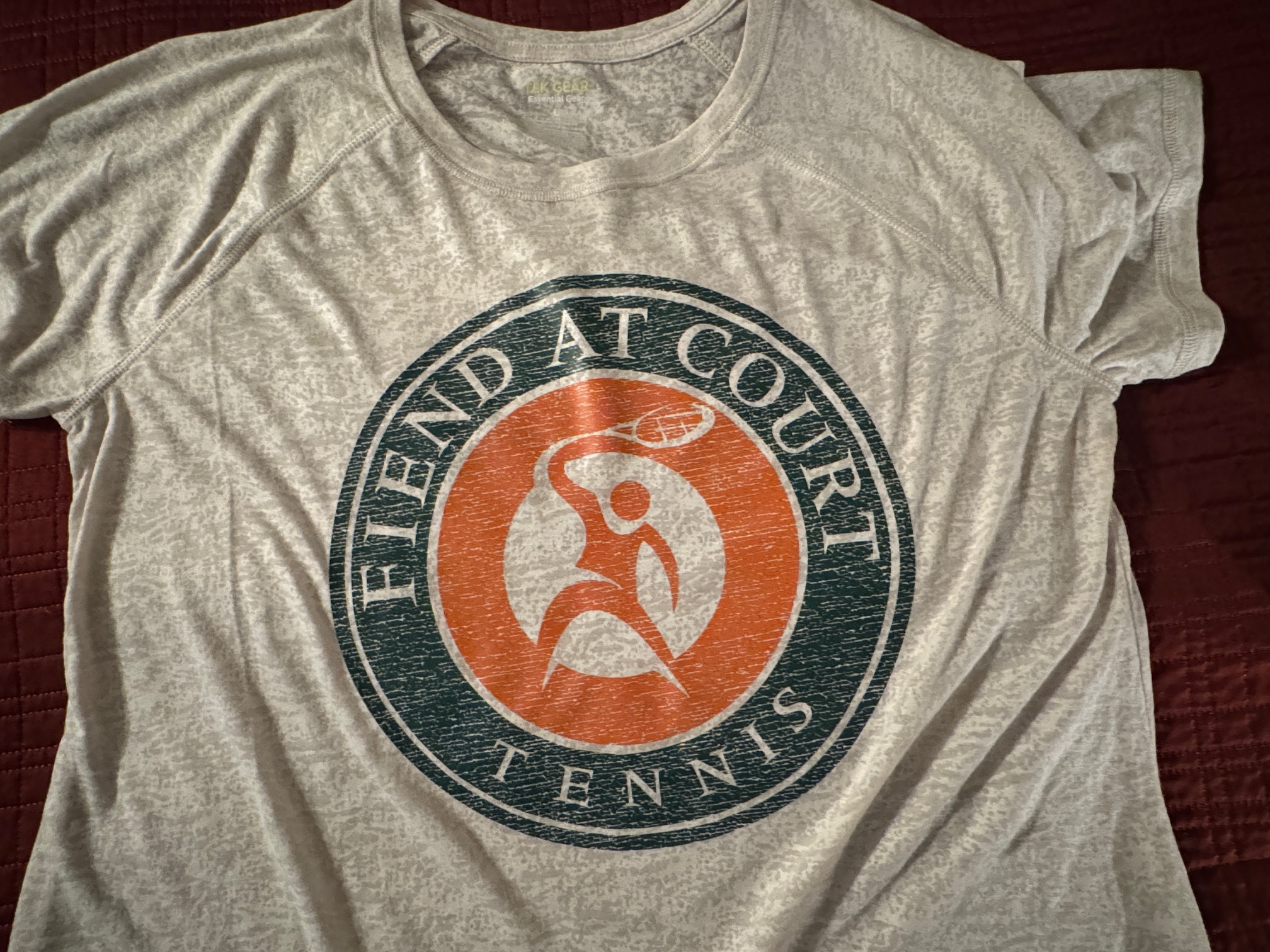When a player turns their back to their opponent as they are about to play a sitter overhead or high volley, they signal that they are conceding the point. Like so many cultural norms of tennis, that initial action kicks off a cascading series of “correct” responses. The recent Novak Djokovic versus Cam Norrie debate from “Conceding the Point” in yesterday’s post illustrates the expectation that the player who turned their back will not be bruised by the ensuing shot.
Many years ago, I was playing a doubles match at an Adult tournament in Texas. The opposing team left me with a sitter overhead at point-blank range across from a player who was crowding the net. She turned her back to me and cowered down. It was a clear signal that the point had been conceded.
I tapped the ensuing ball back over the net in her general direction, taking care to ensure that it did not hit her. I was shocked when she turned around, found the ball off the bounce, and chipped a lob over our heads for a winner. It was a violation of behavioral norms in that situation.
I want to say that I patiently explained that once her back was turned, she no longer had the right to participate in the ensuing shot. As is often the case with players doing such things, she didn’t think she had done anything wrong. In fact, she seemed to believe that her deception was “smart.” It’s neither smart nor acceptable.
The point was inconsequential to a match that we were clearly well on our way to winning. However, because she had violated the code, my partner and I were obligated to go hard at the conceding team’s backs for the remainder of the match. In fact, I warned her that if a similar opportunity occurred, she better run completely off the court because I would be gunning for her. This creates a potential “bad optics” situation where casual observers could walk up to a match to see a stronger player pelting a hapless opponent’s back with the ball.
The drama surrounding Norrie tagging Djokovic with an overhead described in “Conceding the Point” exists only because of the universal understanding that hitting an opponent’s turned back with a ball is not right. Had Norrie hit a softer ball and Djokovic turned and successfully played it, there still would have been outrage.
As a curious coda to this situation, the point isn’t quite over once the concession is signaled. Had Norrie missed the subsequent shot, then the point would have gone to Djokovic. That is also the case in competitive-recreational tennis. The player still has to successfully put the sitter into the court.
Tennis is full of these hidden rules and behavioral norms.




I saw the incident with Norriie and Djokovic and Norrie could have nailed him but didn’t. Norrie was watching the high ball and his eyes were focussed on that and not on his opponent.
A player should never turn their back on during play, they might get hurt and when they lose sight of the ball, they can’t move out of it’s way. More importantly, they lose the opportunity to make a reflex return.
The incident with Norriw and Djokovic says more about Djokovic than Norrie.
Until the Novak/Norrie match, I had not heard that turning your back meant conceding the point. Turning your back is not really an effective signal because the player may not notice it. From watching the video, I don’t think Norrie saw it when he was hitting the overhead.
As the other comment said, I turn my back out of self protection, often accompanied by running away. If in that process I had a shot at a return, I’d take it. Also from your discussion, if Norrie hits the ball into the net, the point has not really been conceded. At my 3.5 level, easy overheads are put in the net fairly regularly.
Interesting – never heard that turning my back to my opponent who had an easy slam shot was conceding the point – just do it to protect my front. Do hope not to get hit after hitting such an easy return. Would have felt good & kind of lucky if I’d returned a shot after I’d turned around and also sad that the opponents would think I didn’t follow a code that isn’t written down anywhere. Do agree that intentionally hitting someone after they turn is very inappropriate.